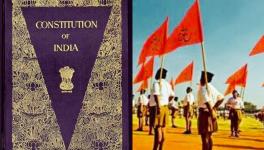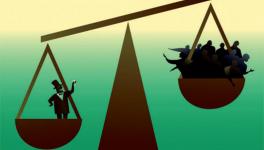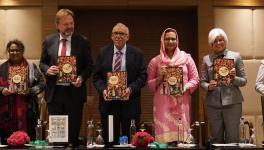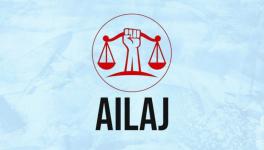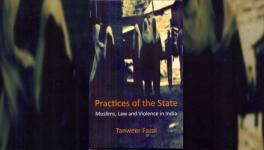33% Muslims, 20% Adivasis and Dalits Faced Discrimination at Hospitals: Oxfam India
Representational use only.
An Oxfam India survey has revealed glaring discrimination on the basis of religion and caste in the healthcare system with 33% of Muslim respondents and more than 20% Adivasis and Dalits feel discriminated against.
The survey, ‘Securing Rights of Patients in India’, conducted in 28 states and five Union Territories between February and April, also revealed that 22% of Scheduled Tribes, 21% of Scheduled Castes (SCs) and 15% of Other Backward Classes faced discrimination by healthcare providers or hospitals.
The 3,890 responses also showed that 28% of people from Karnataka, 24% Gujarat, 21% Maharashtra, and 20% in Uttar Pradesh, Bihar, Jharkhand and Rajasthan reported facing discrimination by healthcare professionals due to their language, “which reflects on anti-migration sentiments of healthcare professionals”.
“The survey shows that the basic rights of patients in India are being routinely denied in healthcare facilities for the poor and middle class alike. Skewed power dynamics with respect to class, caste, religion, and gender between the healthcare providers and patients deepen existing structural inequalities in the healthcare system,” Amitabh Behar, CEO, Oxfam India, said in a statement.
Anjela Taneja, head, inequality, health and education, Oxfam India, told Scroll.in that medical practitioners imbibe the same biases as the rest of society and these biases sometimes reflect in the ways in which they engage with patients. “Untouchability is still real. So, doctors may sometimes be reluctant to hold a Dalit person’s hand to check their pulse,” Taneja, who led the survey team, said. “Similarly, doctors may be reluctant to explain the nature of diseases and treatment to Adivasis believing that they are not likely to understand the information.”
Taneja also mentioned the campaigns targeting Muslims after the Tablighi Jamaat was held in the early days of the pandemic. “A particular community was vilified at the time, which was grossly unfair,” she said.
According to the survey, these findings are “consistent with studies looking at the experiences of Dalits, Adivasis and religious minorities in the health system. Health outcomes are consistently lower for Dalits, Adivasis and Muslims”.
A study exploring religion-based discrimination in health facilities in Mumbai, the survey pointed out, showed that “many Muslim women felt that there was a difference in the way the staff at the public health facilities spoke to them when compared to how they spoke to people belonging to their caste or religion. The pandemic has further deepened the systemic Islamophobia within the country’s health system”.
The findings of the survey are similar to those reported by the Human Rights Watch published in 2001, which found that SCs are frequently denied admission in hospitals. Similarly, Untouchability in Rural India survey discovered that Dalits were denied entry into private health centres or clinics in 21% of villages.
“The Patients’ Rights Charter drafted by the ministry of health and family welfare needs to be immediately adopted by state governments along with robust grievance redressal mechanisms to provide citizens with recourse when things go wrong,” Behar added.
Oxfam India also found that 35% of women were examined by a male doctor in the absence of a female medical professional, violating the charter, which requires the hospital management to ensure the presence of another female person in the room during such examinations.
Among the respondents, 74% were given prescriptions or asked to get tests/investigations done without explaining their disease, nature and/or cause of illness. More than 50% of the respondents were not provided any information about the investigations/tests being done during hospitalisation.
The survey also revealed that 19% of the respondents were denied the bodies of their close relatives who were hospitalised in violation of the charter. Besides, 30% of the respondents were discriminated against because of an illness or health condition, 12% due to their religion and 13% on grounds of caste.
Get the latest reports & analysis with people's perspective on Protests, movements & deep analytical videos, discussions of the current affairs in your Telegram app. Subscribe to NewsClick's Telegram channel & get Real-Time updates on stories, as they get published on our website.











